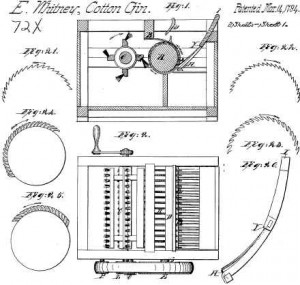Thus far in this series we’ve talked about the difficulty of getting a clear view of paid search performance, of deciding the most urgent risks and opportunities amidst the volumes of data that you do have. Now we come to the third issue: the productivity (or lack thereof) in making changes or improvements to your paid search account. Possible Changes To Improve Search Campaigns There are a limited number of things you might want/need to do to your paid search campaigns. Most of them aren’t too difficult when required on a small scale. But there’s not much in PPC campaigns that really happens on a small scale, which is where the frustration begins. You might want to add keywords. It’s not hard to generate a large list of incremental keywords, and there are tools to help you do it. You can even harvest search queries, scape competitor websites, or get lists from Compete or Hitwise of terms driving traffic for others. But to effectively apply a list of keywords they need to be expanded and parsed into versions and phrases and synonyms and layered across match types and segregated into ad-groups and campaigns and matched with bids and text-ads. The ideal environment for this would both facilitate the process as a whole and provide suggestions based on a learning algorithm which watched your style of division and targeting. You could see the need to modify match types based on your search queries to build more effective match type keyword traps. This requires versioning keywords, segregating them into Ad-groups, pyramiding bids, and making sure the net is wide and lacks gaps or overlaps. Software could visualize this process and make it ‘drag and drop’ and even ‘bionic’ if someone put a little effort in. Your bids may need to be changed, and of course this is the one task to which some substantial software automation development effort has been placed. This is a big topic I’ll save for a future series of in-depth posts. You might need to substantially reorganize your campaigns. This happens for all kinds of reasons, many having to do with the impact of organization on the roll-up summary numbers as presented, some having to do with quality score management, the issue of match-type control and reporting, issues of geo-segmentation, and of course good old logical segmentation. The technology provided for campaign reorganization today – cut and paste – is getting a little dated and I feel confident that a more elegant and productive solution could be conceived and developed. The text-ads you’re running may need to be altered. While the idea of presenting four blank boxes and allowing unlimited freedom (with the constraints of available character limits) is powerful, perhaps there would be some advantage in tracking and analyzing the different ‘recipes’ used in various ads, building up repositories of different synonyms for important concepts and then making it easy to re-use effective ones and tracking how they perform both individually and as groups based on their relative position in the ad, in the ad as it runs at different positions or on different days, etc. Lastly there is a chance that you’ll need to test different landing pages (leaving alone for now the implications of testing various designs within a single landing page). From the typical home page vs category page vs item page variances, it may be wise to consider user personas based on the keywords and queries and other factors as well. Here again the current ‘type-anything-you-want’ technology could be enhanced by allowing simple meta data to be entered and tracked (how are item pages doing in terms of conversion vs category pages vs the home page) and enabling automated testing of these variations. And it doesn’t have to be limited to just a simple ‘which page’ consideration – performance may vary by the length of the query or number of works in the keyword phrase?, time of day, day of week, visit number, or many other factors. Software could track and optimize this. Working In A Coal Mine The common element in the current state of paid search management is that only one of the steps in even the most simplified version of the process has progressed even one iota in the last five or more years in terms of automation.  Tens of thousands of people are being treated as migrant-search-workers standing in the hot sun every day harvesting keywords and clicks. And for the moment we’re not talking about the chisels and stones they’re given to bang out reports and dashboards. Where is the Eli Whitney of PPC? (Upcoming Events: I’ll be at the Semphonic XChange Conference in San Francisco on Aug 17-19, and am Speaking on “Identify, Analyze, Act: SEM by the Numbers” at Search Engine Strategies in San Jose on August 19th)
Tens of thousands of people are being treated as migrant-search-workers standing in the hot sun every day harvesting keywords and clicks. And for the moment we’re not talking about the chisels and stones they’re given to bang out reports and dashboards. Where is the Eli Whitney of PPC? (Upcoming Events: I’ll be at the Semphonic XChange Conference in San Francisco on Aug 17-19, and am Speaking on “Identify, Analyze, Act: SEM by the Numbers” at Search Engine Strategies in San Jose on August 19th)



